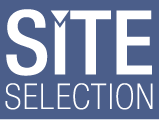PRESS RELEASE: March 4, 2014
 A spike in new and expansion corporate building projects during 2013 has landed the greater Madison area among the top 10 U.S. metropolitan areas of similar size for that activity. Site Selection magazine’s annual rankings place Madison tied for eighth among metro areas with populations between 200,000 and 1 million.
A spike in new and expansion corporate building projects during 2013 has landed the greater Madison area among the top 10 U.S. metropolitan areas of similar size for that activity. Site Selection magazine’s annual rankings place Madison tied for eighth among metro areas with populations between 200,000 and 1 million.
“We are pleased that greater Madison has earned a place on Site Selection magazine’s top 10 list for 2013,” said Paul Jadin, president and CEO of the Madison Region Economic Partnership. “Earning a spot in these annual rankings is particularly gratifying because they are based on real economic development data. We believe this ranking is indicative of what is happening not just in Madison, but throughout our economically diverse region. We look forward to more great news from across the region in the months and years ahead.”
Site Selection’s rankings exclude retail, government, school and hospital projects. To be included in the rankings, a project must meet at least one of three criteria: it must include at least $1 million in capital investment, create at least 50 new jobs or add at least 20,000 square feet of new floor area. Site Selection is the leading publication for expansion and relocation consultants, corporate real estate executives, facility planners and CEOs on all topics related to siting and building new office, manufacturing or other facilities.
The complete rankings can be accessed at siteselection.com.
